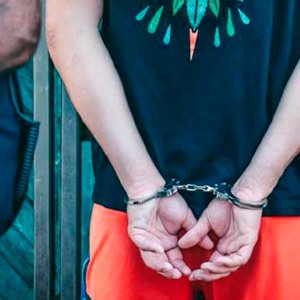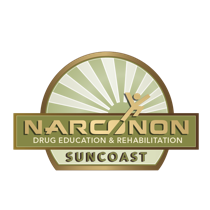10 Signs You Shouldn’t Wait for Addiction Treatment

The substance abuse problem is likely bigger than you thought in this country. In fact, statistics suggest that someone you know could be struggling with addiction.
Consider this – 48.7 million people aged 12 or older had a substance abuse disorder in the “last year.” That’s approximately 14% of the US population – nearly one in seven Americans struggling with addiction.
Before you discount the statistic as fantastical, consider the source. These statistics originate from a 2022 survey conducted by the Substance Abuse and Mental Health Services Administration (SAMHSA). SAMHSA primarily uses the National Survey on Drug Use and Health (NSDUH) to collect data in-person and online. The survey employs a complex, multistage probability sample design, engineered to ensure an accurate representation of the US population across all demographics.
So, let’s assume the number of drug abusers is accurate.
Numbers without action are merely an academic exercise. Reports don’t alleviate the suffering connected with a drug abuser or their families.
Thus, in the case of the dire situation of 48.7 million substance abusers in our country, logic dictates taking at least two actions:
1. Identify the substance abusers
2. Lay out a path to recovery
Identifying Substance Abuse
Some indicators have become anecdotally familiar to trained clinical staff who have assessed hundreds of clients presenting themselves for drug treatment services. These professionals have learned that there are often more subtle signs that precede the more apparent symptoms of addiction.
One indicator is that a person continues taking a drug, even after it’s no longer needed for the original health issue.
The person has become physically dependent upon a drug that they initially took for legitimate medical reasons. The type of drug could include pain medication for injuries or post-op pain medication.
The Path to Dependence
Drug dependence can begin innocently and happen to anyone in any demographic – an athlete with a sports injury, a mom with post-operative pain – anyone. No one decides to become an addict, and addiction doesn’t discriminate. The person involved may not fully understand what is happening or why and may not acknowledge what is occurring. But one thing the person has come to know – they feel uncomfortable if they don’t have the drug.
Those close to the person struggling with dependence might not know that the person has developed a problem. At first, their friend or family member isn’t likely to acknowledge the fact of dependence themselves. They might genuinely believe that they still need the drug for the original condition. This often evolves into hiding the condition from others, out of fear of judgment or consequences.
At this point, friends and family might only observe that the person continues to complain of pain and asks for another prescription.
Though it’s uncomfortable to talk about, this is a perfect time for the abuser to come clean with family and friends and ask for help. But such discussions don’t happen frequently enough. And so, the individual continues down a destructive, addictive path.
The path leads to other indicators that a person abusing drugs can observe in themselves.
Signs You Are Struggling with Addiction
- Taking the drug has become a compulsion, not a choice. You can’t stop taking the drug, even if you want to.
- You can no longer stick to specific dosages. You may tell yourself you’ll only have so much, but then find yourself taking larger and larger amounts.
- You have built up a tolerance and require more and more of the drug to achieve the same effects.
- The drug is interfering with your daily life. You may have trouble completing everyday tasks, such as your job or household chores.
- You find yourself constantly thinking about the substance, when you’ll have it next, and how to get more.
- Without help from friends and family, the nature of drug dependence can lead you or anyone to even more difficult circumstances, as noted below.
- You steal or borrow money to pay for the drug.
- You’ve lost interest in life and activities you used to enjoy.
- You experience adverse effects when the drug wears off, like shakiness, anxiety, depression, headaches, or you may feel sick to your stomach.
If you have any of these signs, please seek help now.
Signs of Drug Addiction in Someone You Know
At some point in the addiction process, friends and family will likely sense that something is wrong. The person has changed. But friends and family may not know what is wrong or how to help.
It’s not always easy to spot the changes that occur when someone you know is struggling with addiction. Here are some signs to look out for:
- Changes in mood, behavior, or personality. Such as irritability, sudden mood swings, or appearing spaced out.
- They have a greater need for money or are struggling financially.
- Changes in their health and appearance, such as bloodshot eyes, slurred speech, shakiness, agitation, weight loss, or lack of personal hygiene.
- Sudden changes in their social circle and regular activities, like hanging out with a new set of friends.
- They may suddenly seem closed off or like they are trying to hide something.
The Path To Recovery
Once addiction has been identified, the next step is for the addicted person to receive appropriate help.
Handling addiction can be a difficult process. At its foundation, addiction is about compulsive behavior that is nearly impossible to tackle without outside support. Therefore, effective treatment is indicated when the signs of addiction are apparent. Given that over 80 thousand souls lost their battle with addiction last year, the fastest path to effective treatment is the safest way to go.
The best scenario is if the person has admitted to the drug abuse problem and has agreed to go to treatment.
If the person won’t acknowledge their drug abuse, an intervention can be a necessary intermediary step before treatment. Buying into the notion that the person with addiction can stop on their own usually prolongs the suffering for all.
Choosing the Right Rehabilitation Program

Several factors should be considered when researching drug rehabilitation programs. Affordability, availability, and accreditation are key factors to consider when evaluating a program. It’s important to ask if the program is tailored to the individual needs of each client. And most importantly, does the program have a proven track record? Narconon offers personalized recovery programs that address addiction at the source and without the use of any substitute drugs. The program is designed to help counteract the destructive effects of drugs by using proven rehabilitation technology. We address what caused the person to start using drugs in the first place. Each Narconon program across the world uses the same standardized techniques, including the Narconon drug treatment program in Florida.
The program techniques are unique to Narconon, which is often a helpful element for those who have failed at other programs. The program also provides the education necessary, through Narconon’s Life Skills Courses, to help the client rebuild relationships, regain control of life and remain drug-free after graduation. Don’t wait to start your new drug-free life; get help now. Addiction treatment programs in Florida, like Narconon, are designed to help counteract the destructive effects drugs have on their lives by using proven rehabilitation technology that addresses the cause of addiction.
References:
- SAMHSA. Highlights for the 2022 National Survey on Drug Use and Health. https://www.samhsa.gov/data/sites/default/files/reports/rpt42731/2022-nsduh-main-highlights.pdf
- US Department of Health and Human Servies. Office of Disease Prevention and Office of Healthy Promotion. National Survey on Drug Use and Health. Annually since 1990 https://odphp.health.gov/healthypeople/objectives-and-data/data-sources-and-methods/data-sources/national-survey-drug-use-and-health-nsduh#:
- CDC.National Center for Health Statistics. US Overdose Deaths Decrease Almost 27% in 2024” https://www.cdc.gov/nchs/pressroom/nchs_press_releases/2025/20250514.htm#


